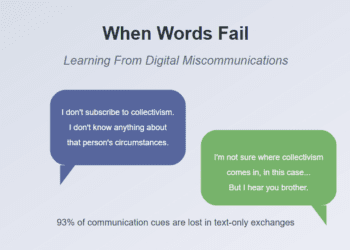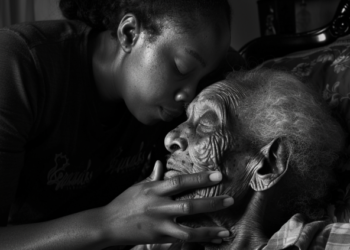In the realm of human interactions, apologies hold a unique power. When done sincerely, they have the potential to mend relationships, rebuild trust, and foster personal growth. However, offering a heartfelt apology is an art that requires skill, empathy, and genuine remorse. In this blog post, we will delve into the intricacies of The Art of Apologizing, exploring both its positive impact and the pitfalls to avoid.
The Importance of a Genuine Apology
Apologies are not mere words; they carry the weight of acknowledgment, accountability, and the promise of change. A sincere apology communicates that you value the relationship and are willing to take responsibility for your actions.
Dr. Jane Smith, a renowned psychologist specializing in interpersonal relationships, emphasizes the significance of genuine apologies. She notes, “Apologies can be powerful, but they must be genuine. An insincere apology can do more harm than good.”
Rebuilding Trust and Strengthening Bonds
A well-crafted apology has the potential to rebuild trust and strengthen the bonds between individuals. It creates a space for healing, allowing both parties to move forward with a newfound understanding.
Consider this scenario: Sarah and Alex, close friends for years, have a falling out due to a misunderstanding. Sarah, recognizing her mistake, offers a heartfelt apology. Alex, touched by Sarah’s sincerity, feels a renewed sense of trust and their friendship grows even stronger.
Personal Growth and Learning
Embracing the art of apologizing also leads to personal growth. It encourages self-reflection and a deeper understanding of one’s impact on others. Through this process, we become more aware of our behaviors and strive to become better versions of ourselves.
As we learn from our mistakes and take responsibility for them, we embark on a journey of self-improvement. This process of growth not only benefits our relationships but also enhances our overall well-being.
The Elements of a Sincere Apology
1. Acknowledgment of Wrongdoing
Acknowledging your mistake is the first step towards a sincere apology. It shows that you are aware of the impact of your actions and are willing to take responsibility.
Imagine a scenario where John forgets an important commitment he made to his colleague, Lisa. Recognizing his error, John approaches Lisa and sincerely says, “I want to sincerely acknowledge that I hurt you with my thoughtless words. I am truly sorry.” This acknowledgment sets the stage for genuine reconciliation.
2. Expressing Genuine Remorse
Expressing genuine remorse means showing that you are truly sorry for the pain you’ve caused. It involves empathizing with the other person’s feelings and understanding the gravity of the situation.
In the case of Maria and Robert, a couple experiencing a disagreement, Maria takes a moment to reflect on her actions. She approaches Robert, saying, “I can only imagine how hurt you must feel, and I am genuinely sorry for my thoughtlessness.” This sincere expression of remorse opens the door for healing and understanding.
3. Offering Amends
Sometimes, actions speak louder than words. Offering amends shows that you are committed to making things right and are willing to take concrete steps towards healing.
Consider the example of Emily, who inadvertently damages her friend Sarah’s treasured artwork. Recognizing the significance of the artwork, Emily says, “I would like to make it up to you. How can I best demonstrate my sincerity?” This willingness to make amends demonstrates Emily’s genuine desire to repair the relationship.
4. Committing to Change
A sincere apology is not just about the past; it’s also a promise for the future. Committing to change demonstrates your dedication to avoiding similar mistakes in the future.
James, a colleague who realizes he has been consistently late for meetings, approaches his team with a genuine apology. He states, “I am committed to learning from this experience and being more mindful of my words and actions.” This commitment to change reassures his team that he values their time and is dedicated to improvement.
Common Pitfalls to Avoid
1. Insincerity
An insincere apology can do more harm than good. It erodes trust and can lead to further resentment. Always ensure that your apology comes from a genuine place.
2. Excuses and Justifications
Avoid the temptation to make excuses or justify your actions. This diminishes the sincerity of your apology and shifts the focus away from taking responsibility.
For example, saying, “I was stressed and didn’t mean it” is not a genuine apology. Instead, take ownership of your actions without offering excuses.
3. Delaying the Apology
Procrastination can escalate the issue and make the other person feel neglected. Address the situation promptly to prevent further damage.
Imagine a situation where Emma inadvertently forgets her friend Jake’s birthday. Rather than waiting for days to address the oversight, she approaches Jake as soon as she realizes her mistake, demonstrating her genuine regret.
4. Repeating the Same Mistake
A pattern of repeated behavior undermines the sincerity of your apology. It’s crucial to demonstrate through actions that you are committed to positive change.
If you find yourself apologizing for the same issue repeatedly, it’s important to take proactive steps to address the underlying behavior. This may involve seeking support, setting reminders, or implementing strategies to prevent recurrence.
The Healing Power of Forgiveness
Empowering Yourself Through Forgiveness
Forgiveness is a gift you give to yourself. It liberates you from the weight of resentment and allows you to move forward with a renewed sense of peace and clarity.
As Maya Angelou beautifully said, “Forgiving doesn’t mean condoning. It means letting go of the pain.” When you choose to forgive, you release yourself from the burden of holding onto negativity, enabling you to embrace positivity and growth.
How to Overcome a Bad Day: Finding Inspiration and Turning Things Around
For more insights on personal growth and overcoming challenges, check out my previous blog post on How to Overcome a Bad Day: Finding Inspiration and Turning Things Around.
If you have trouble moving past guilt, try using positive affirmations to reframe your self-talk. Check out this post on the power of “I” statements for tips.
“The practice of apologizing is one of the most healing experiences we can have in any relationship. That’s why the most important phrases in any relationship are ‘I apologize’ and ‘You’re forgiven.'”
Dr. Frederic Luskin, Author of “Forgive for Good”
Conclusion: Embracing Growth Through Apology
Mastering the art of apologizing is a powerful skill that can transform mistakes into opportunities for growth and healing. By acknowledging wrongdoing, expressing genuine remorse, offering amends, and committing to change, you can pave the way for stronger relationships and personal development. Remember, a sincere apology is not a sign of weakness, but a testament to your strength and empathy.
So, let us embrace the art of apologizing and embark on a journey of self-improvement and deeper connections with those around us.
Disclaimer: The advice provided in this blog post is based on general principles of effective apologizing. For specific situations, it is recommended to seek professional advice or counseling.
Connect with me on Twitter | Instagram | LinkedIn
Disclaimer: The images used in this blog post are for illustrative purposes only and do not depict actual individuals or situations.
For more information on effective communication and conflict resolution, visit Conflict Resolution Resources.
















































